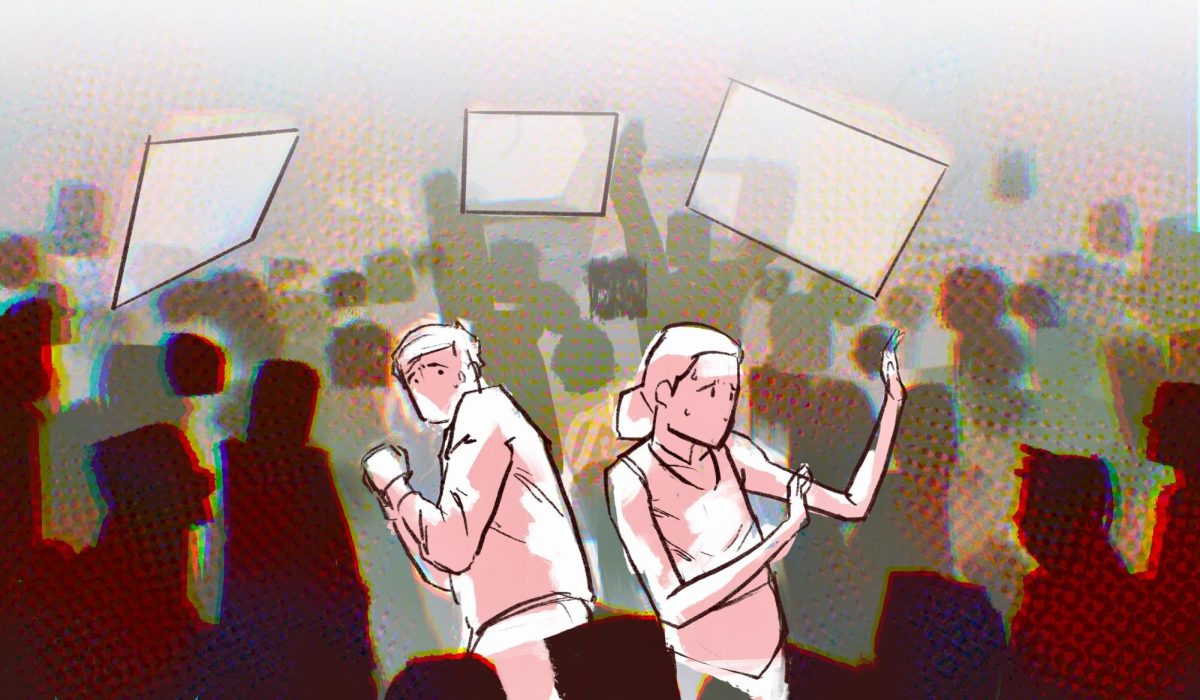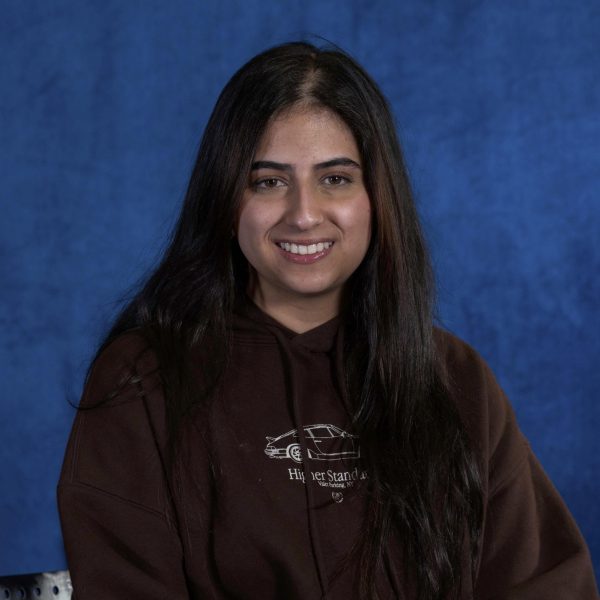Editor’s Note: This article contains potentially distressing accounts of antisemitism, Islamophobia, and other acts of discrimination. All quoted speakers and poll respondents were granted full anonymity for safety concerns.
Tensions and concerns among Jewish, Israeli, Palestinian, and Muslim students have been voiced over the last couple weeks through public forums, following UC San Diego’s statements discussing the university’s objectives of protecting ideological diversity while condemning violence and bigotry.
On Nov. 7, Chancellor Pradeep Khosla released a statement, titled as a “Message to the Triton Community,” in which he condemned antisemitism and Islamophobia while “mourning the tragic losses of innocent civilian lives in Israel and the Gaza Strip.”
The statement expanded on the importance of free speech in fostering academic freedom. However, it also encouraged students who openly express their views to be cognizant of how their words can affect others. Khosla affirmed that the UCSD community “should never be made to feel threatened, and there is never justification for malicious intimidation, harassment or violence.”
The message published by Khosla is the latest of three. He released the first statement nearly a month prior, after the initial Oct. 7 attacks, and then sent out a second on Oct. 10, condemning Hamas’s attacks on Israel as terrorism. This statement was published in support of UC Board of Regents Chair Richard Leib and UC President Michael V. Drake’s message condemning “mideast violence,” and gave general acknowledgment of the preliminary attacks, mourning the innocent civilians and UCSD community members directly impacted.
These statements were released in the midst of Jewish, Palestinian, Israeli, and Muslim students expressing concern over their safety and well-being on campus during the last few A.S. Senate meetings, through both public forum and a special presentation.
During the senate gathering on Nov. 8, before beginning their special presentation, Jewish students spoke to the panel about their families fearing for their safety on campus. The first student, who did not share his name, expressed that his family members “are frightened and tell me that they’ve never seen Jew-hatred in the United States or the world like this since the Holocaust.” The speakers also called for the attending students to endorse Senator Ivan Ramirez’s A.S. resolution condemning antisemitism.
Another speaker for this presentation elaborated on the Jewish community’s stance toward the letters A.S. has released.
“[The student council] did not apologize for antisemitic language and misinformation that was proliferated,” they said. “Which is not only dangerous for the Jewish community, but for everyone.”
UCSD’s Students for Justice in Palestine chapter has also attended recent A.S. meetings to voice their dismay. During the Nov. 15 session, which is typically held during Week 5 of Fall Quarter, the senate opened with and continued their meeting with budget approval, instead of starting with public comment.
However, during the budget hearings, a speaker from SJP was allowed speaking time from Senator Elizabeth Lopez.
“Our Associated Students don’t want the students’ concerns, nor their safety requests, or wanting to hear their voices,” the speaker said. “You guys are here to assure our safety and well-being on campus.”
Later in the meeting, a member of SJP recounted a fear-provoking situation they found themself in after the Nov. 8 meeting.
“Me and a fellow SJP girl were walking in Warren around 11 p.m. We had this keffiyeh wrapped around our shoulders,” he explained. “We were walking to a friend’s house when a guy drove by in his car and sticked his head out the window and screamed ‘Hillel.’ Incidents like these make us feel so unsafe on campus.”
The UCSD Guardian released an anonymous poll last week over social media to gather opinions about campus safety related to the current events from UCSD students of different backgrounds.
One student who identifies as Jewish expressed that they were followed and harassed while wearing a Star of David on campus.
“I think the person took it as a perceived connection to Israel instead of the religious symbol that it is,” they said. “I think if the school wanted to do something related to the students, they could’ve taken the steps to hold space for the people who are hurting and encourage them to do so for each other. Small events where people talk about the hurt and the pain and the fear they’ve been going through with people who disagree with them.”
Another response, submitted from a student identifying as Palestinian-American, recounted an act of bigotry they experienced firsthand.
“I got called a terrorist simply for walking wearing my traditional scarf and the school did nothing,” the student said. “They [UCSD] have always shown solidarity with the oppressors and never with the oppressed.”
Although some students who responded to the poll explained that they are not directly affected by the Israel-Hamas violence, they voiced support for their peers, disagreeing with the way Khosla and UCSD have handled the situation.
“Like always, [Chancellor Khosla] stays silent and does absolutely nothing as he continues to collect his paycheck quietly,” one student said. “I feel like the UCs in general should at least provide more information about what’s going on in Gaza.”
The Guardian reached out to Tritons for Israel, SJP at UCSD, and Muslim Student Association for comment, but as of this article’s publication have not received a response.
For more information about students’ reactions to the current Israel-Hamas violence, read our previous coverage online.
Editor’s Note: On Nov 20, 8pm, this article was updated to fix the date of the AS meeting on Nov. 8.










